Saltburn: a discussion – Emi S
– NOTE: SALTBURN IS RATED ’15’ THE UK, please adhere to viewing guidelines and don’t watch if you’re under the age of 15.
Saltburn. A ‘thriller/comedy’ directed by Emerald Fennell. Everyone’s talking about it, but not in the same way they did other box office hits such as Barbie or Oppenheimer. Every time I’ve mentioned Saltburn to anyone in the last few weeks, the immediate response is a collective need to bring up its controversy. So… why?
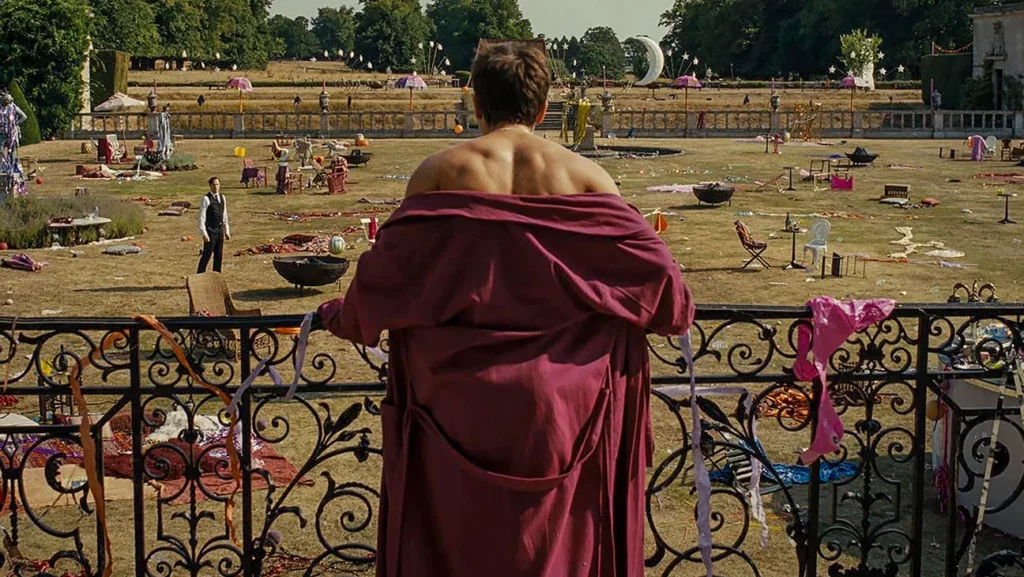
But first, an introduction, for those of you who have little idea of what Saltburn is.
Oliver Quick (Barry Keoghan), an undergrad at Oxford, struggles to fit in with his upper-class peers. He quickly befriends the wealthy Felix Catton (Jacob Elordi), who sympathises with Oliver’s earnest tales about his family situation: his father has recently died, and he lives in a poor household in Merseyside with a mother who is a substance abuser. Pitying him, Felix invites him to stay at his grand family estate (Saltburn) for a few weeks in the summer, where Oliver meets Felix’s parents, Sir James (Richard E. Grant) and Lady Elspeth (Rosamund Pike), as well as his sister, Venetia (Alison Oliver), and his American cousin, Farleigh (Archie Madekwe). Other eccentric characters include Duncan (Paul Rhys), the ever-present butler, and ‘Poor Dear Pamela’ (Carey Mulligan).
And from there it goes…

Now, it’s no secret that the majority of the controversy surrounding this film comes from the three most suitably shocking scenes. If you’ve seen it, you’ll know without a doubt the exact three scenes I’m talking about. I’m not allowed to disclose what they are, but for the purposes of discussion, you just have to know that they were shocking and a bit grim (NB. unsettling in what they depicted, rather than how they were depicted).
I think what emphasises the severity of the reaction people had to these scenes is the fact that few actually saw them coming. From the outset, Saltburn was labelled a ‘thriller/comedy/drama’ – and still is on iMDB, Wikipedia, Rotten Tomatoes, and Letterboxd. Rotten Tomatoes’ audience description specifies that ‘Saltburn is really intense and the cast does a great job, but if you’re easily grossed out or offended this probably isn’t the film for you’, which is a very apt description.
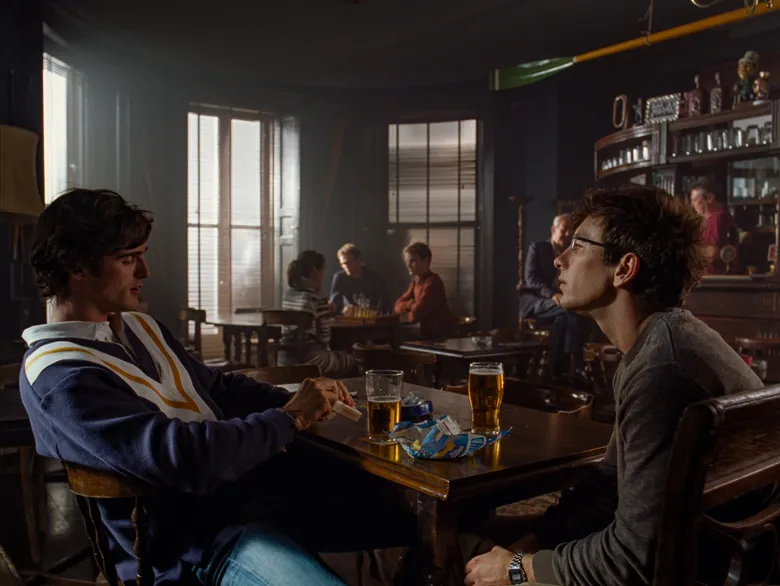
Saltburn is director Emerald Fennell’s second big-budget film, following her first – Promising Young Woman. Without revealing too much, she opts for a narrative which discusses wealth and class. Being a bit of a nepo baby (her father is Theo Fennell, celebrity jewellery designer), you can see how her criticisms of exuberant wealth appear hollow. For this reason, much of the points she makes about class are extremely safe and surface-level, being evident in the decadence of the mansion’s interior, but any vaguely meaningful moments are relegated to brief comments in isolated scenes – if you’re not going to bother discussing it, why include it in your film at all? No less make it the major theme? Juggling her social commentary as well as her attempt at a thriller narrative feels like too tall an order for this film; she tends to forget one of these aspects at times in favour of the other, and they rarely intertwine.
I just feel like it wasn’t really a film for her to make, but then again, her stylistic direction has auteur elements to it, and the film probably would have suffered visually as a result. It feels like it’s emulating a bit of Yorgos Lanthimos, but with a brighter visual trademark.
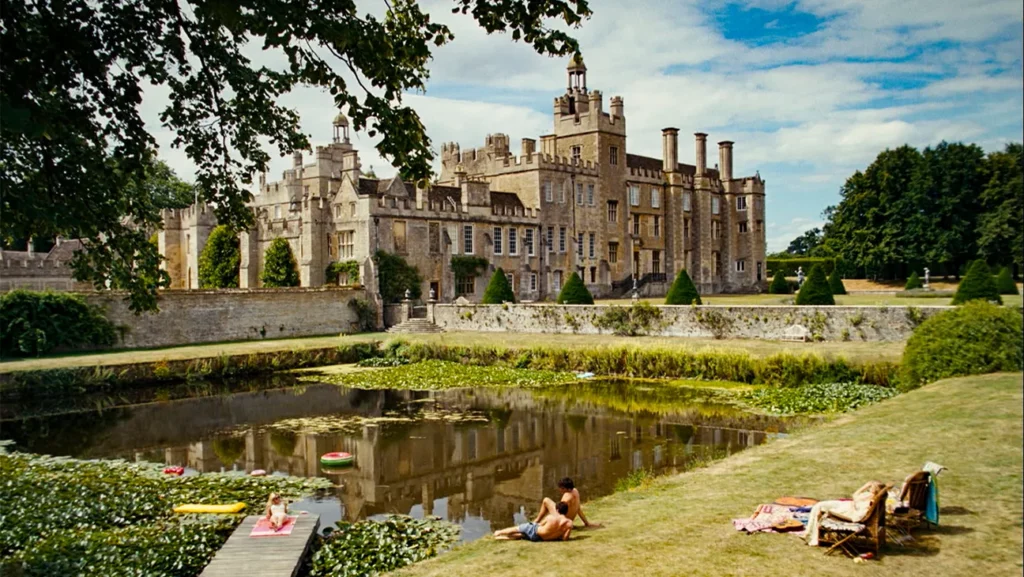
On a totally subjective note, here are things I liked: [SPOILER WARNING]
The casting choices, including
- the variety of actually good English accents
- the eyebrow piercing, obviously
- the name Elspeth
Rosamund Pike’s delivery of ‘But she came from Greece. She had a thirst for knowledge. It couldn’t have been me. I’ve never wanted to know anything in my life’ was hilarious, but with lines as direct as this it would have been better if Fennell leaned into her attempt at an “eat the rich” narrative even further, to end up with something borderline farcical.
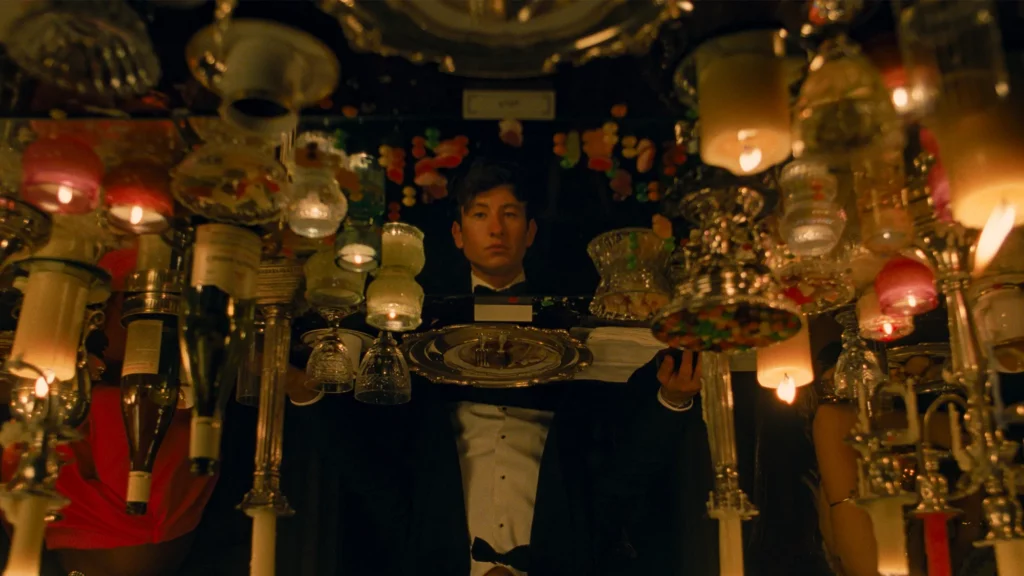
The cinematography, including
- the dutch tilt at finding the body in the maze
- Oliver going to meet Venetia by the steps
- Oliver’s reflection in the table at dinner (pictured above)
- the light streaming from the window as Felix sits in front of it
- the shot of Oliver ripping out Elspeth’s ventilator
– to name just a few. The colour grading was especially pretty and emulated the feeling of an early-2000s summer. Also, getting to find Oliver was typing that on his laptop was so funny considering he is revealed to be this ‘master manipulator’.
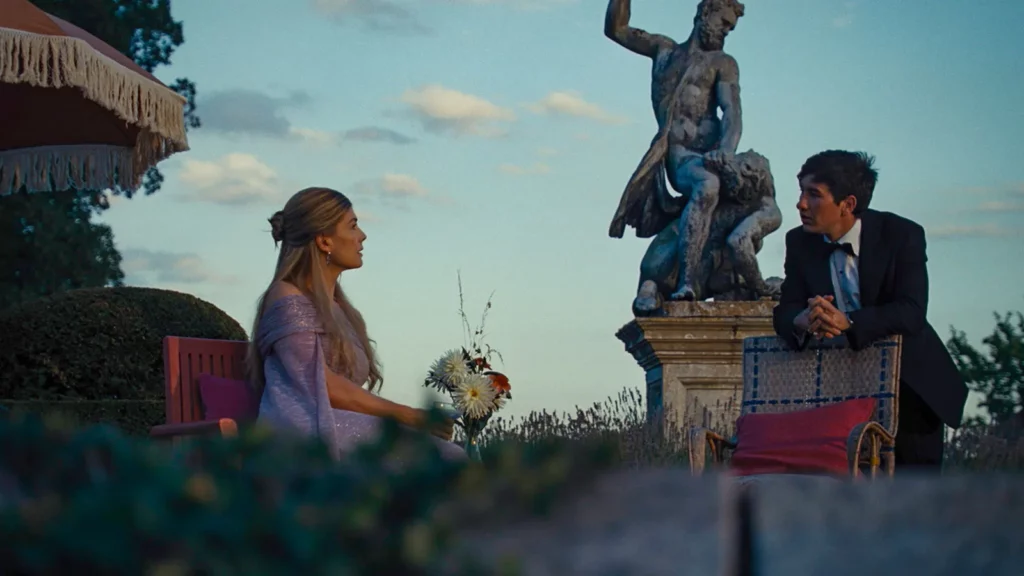
The choice of the 1.33:1 aspect ratio does seem a bit pretentious (which again, would have been solved if Fennell leaned into the satirical elements more) but worked well to show off the gorgeous setting of Saltburn itself. The funeral sequences were well cut, and the the beginning of the dining room scene had great tension – the writing worked really well and the red curtains made the scene. Plus, I genuinely see why the shocking scenes were included. The one I thought fit best with the narrative and Oliver’s deterioration into this manipulative, desperate creature was the most controversial – the grave scene – but I also think it was the only one that actually shocked me because I had somewhat anticipated the other two. But there is a limit… a few days ago a ‘superfan’ of the film got the grave scene tattooed on her leg. Not sure exactly what prompted this decision, but it was definitely a bold choice.
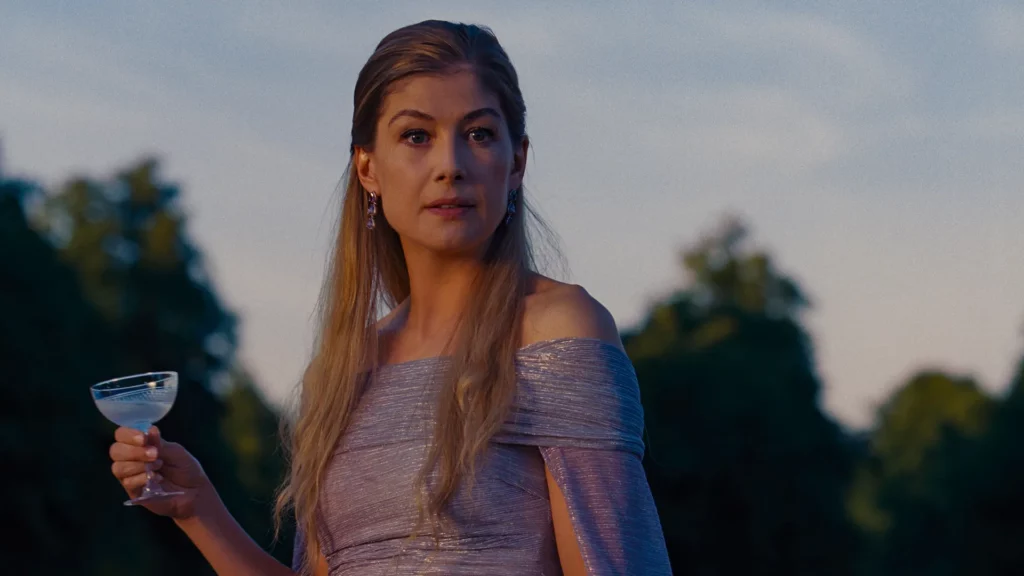
So… Saltburn was good. Not great, but solidly good. Don’t go in expecting a serious commentary, and play along with some of the more ridiculous elements. Enjoy the visual experience – hopefully you now have an inkling of what you’re getting yourself into…
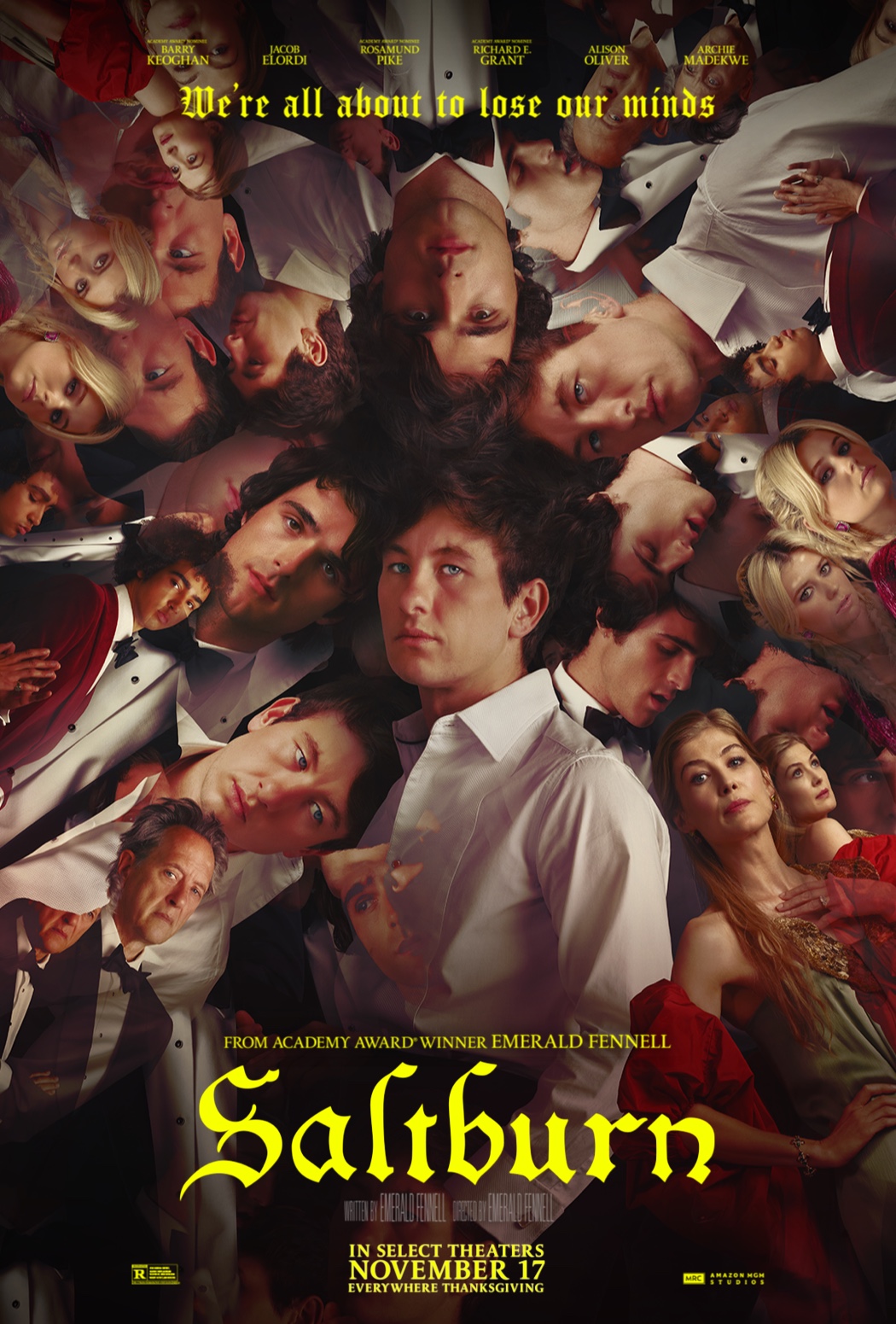














Post Comment
You must be logged in to post a comment.